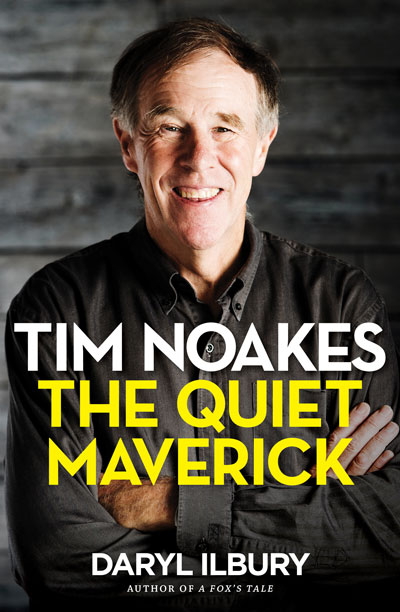Here’s a taster from the revealing new book about the Tim Noakes diet (aka the Banting diet), Tim Noakes: The Quiet Maverick, written by science journalist and author Daryl Ilbury:

“When Noakes fired off his first tweet, in April 2012, according to many scientists he would have been turning his back on the exclusivity of academia, and further embracing popularism. For others it would have posed something of a threat. Given the popularity of Noakes, his academic seniority and the unfettered reach of social media, his opinions on diet and lifestyle would have unlimited reach and immeasurable impact.
However, there’s a flipside: social media also acts as a leveller, dishing out brutal rebuke if collectively warranted. Say something ridiculous and it’ll earn instant and continuous retaliation, and when it comes to something so complex as human biochemistry and nutrition, the resultant tension is virtually tangible, and sentiment sometimes borderline feral.
Why is this? Why is the matter of what we eat a source of such bitter disputation? If food simply serves the function of providing energy for our bodies, why should we be bothered with issues of aesthetics? The answer lies in our emotional connection with food: it is intimately intertwined with issues of social identification and self-awareness.
If your wellbeing is really important to you (as it should be), here are 5 must-read health books:
Foods are anchor points in religious and cultural identities; for example, the eating, or not, of pork, beef, milk and shellfish. Meals are the centrepieces of family ceremonies, social discourse and intimate encounters; we ‘get together for a braai’, ‘meet for coffee’, ‘do business over lunch’ or ‘have a romantic dinner’. But more than that, what we consume is connected with our self-image.
It is part of the regime that defines us and tells others who we are; whether or not we eat free-range meat or meat at all, if we dine on sushi and champagne or burgers and beer. We are also socially catalogued by the brands we consume and where we consume them. But importantly, we are told that what we eat is linked to how we look. Magazine covers boast photoshopped models and recipes to help you look that good, and social media feeds off this fascination with our body image.
The importance of food is also captured in our media consumption. Walk into any leading bookstore and you will probably find that the section or shelves dedicated to ‘Food and Cooking’ will outsize any other; your local Sunday newspaper will no doubt have a section dedicated to all things food; pop stars and Hollywood actors are quick to endorse their latest weird diets, which their slavish fans suck up; food-bloggers command page views that mainstream news titles could only dream of; and there are popular TV channels dedicated entirely to food and cooking.
Are you following the Tim Noakes diet? Check out our favourite Banting-friendly restaurants:
Into this turgid culture of food and identity stepped Tim Noakes on 5 February 2014 when he replied to a question posted two days earlier on Twitter, addressed to him and Sally-Ann Creed, a nutritional therapist (and co-author with Noakes of The Real Meal Revolution). It was from a breastfeeding mother, Pippa Leenstra: ‘Is LCHF eating ok for breastfeeding mums? Worried about all the dairy + cauliflower = wind for babies??’ Noakes’s reply was the following: ‘Baby doesn’t eat the dairy and cauliflower. Just very healthy high-fat breast milk. Key is to ween [sic] baby onto LCHF.’
It’s not an offensive tweet by any stretch of the imagination, neither does it fall foul of any media law – it’s not libellous and there’s no encouragement of harm to others. People could disagree with him and had a voice to do so; that’s the point of social media: it is a platform for public discussion.”
Daryls’ Tim Noakes: The Quiet Maverick (Penguin Random House) is out now, bag it at loot.co.za.

